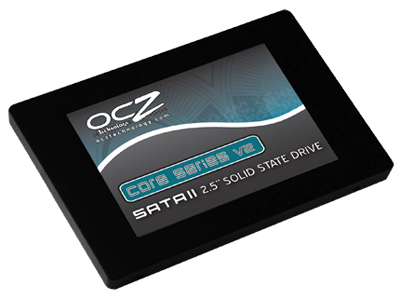Just last month, OCZ rolled out its Core Series SSDs, priced at an all-time low for the otherwise expensive solid-state technology.
A little over a month later, the California-based manufacturer is rolling out V2 of its Core Series drives. The new range features new architecture and has enabled OCZ to increase both performance and capacity.
The Core V2 SSD, pictured below, will be available in 30GB, 60GB, 120GB and 250GB capacities, and offers improved read and write speeds of 170MB/s and 98MB/s, respectively.

OCZ has also thrown in a mini-USB port, this'll allow users to update the Core V2's firmware - should an update become available.
Ryan Petersen, CEO of the OCZ Technology Group, said:
OCZ continues the trend of enabling consumers with the latest in cutting edge solid state disc technology with the introduction of the new Core V2 SSD. As SSD technology progresses, OCZ will continue to release updated and enhanced solutions to ensure our customers stay on the leading edge. The new Core V2 drives offer consumers and system integrators increased capacities up to 250GB, improved read and write performance and faster seek time, all coupled with a new mini USB port empowering customers with the ability to further improve performance and compatibility by updating firmware in the future.
Pricing is yet to be confirmed, but OCZ states it plans to make SSD technology within reach of the average consumer, and that the Core V2 SSD will be priced "50% less per gigabyte than other high speed offerings currently on the market".
The drives have a 1.5 million hour mean time before failure, and come backed with OCZ's two-year warranty.
Official press release: OCZ Technology introduces the enhanced Core V2
Official product page: ocztechnology.com













